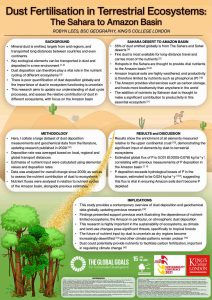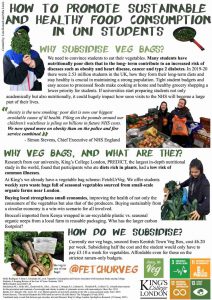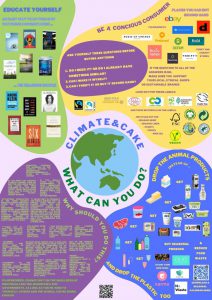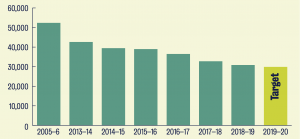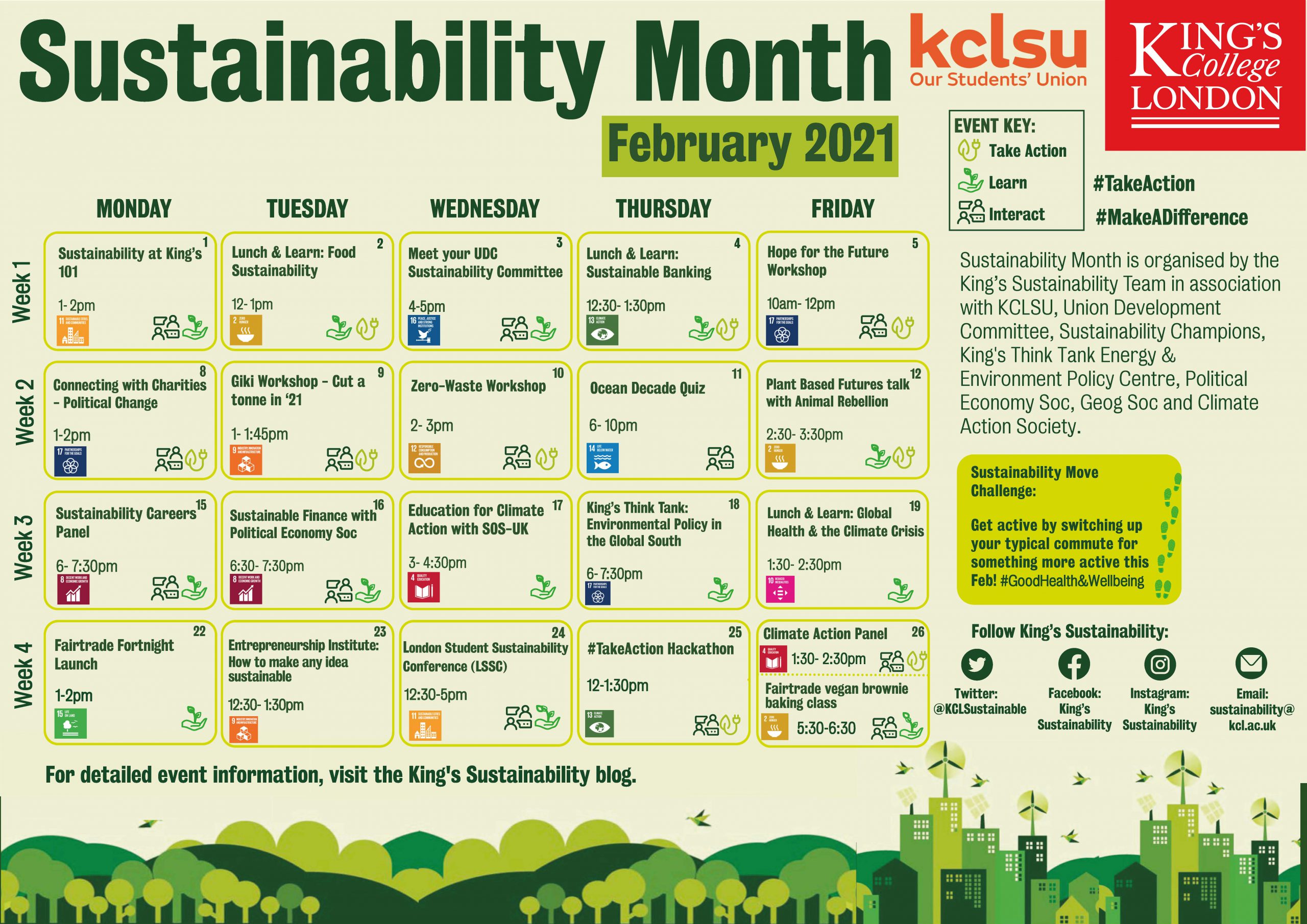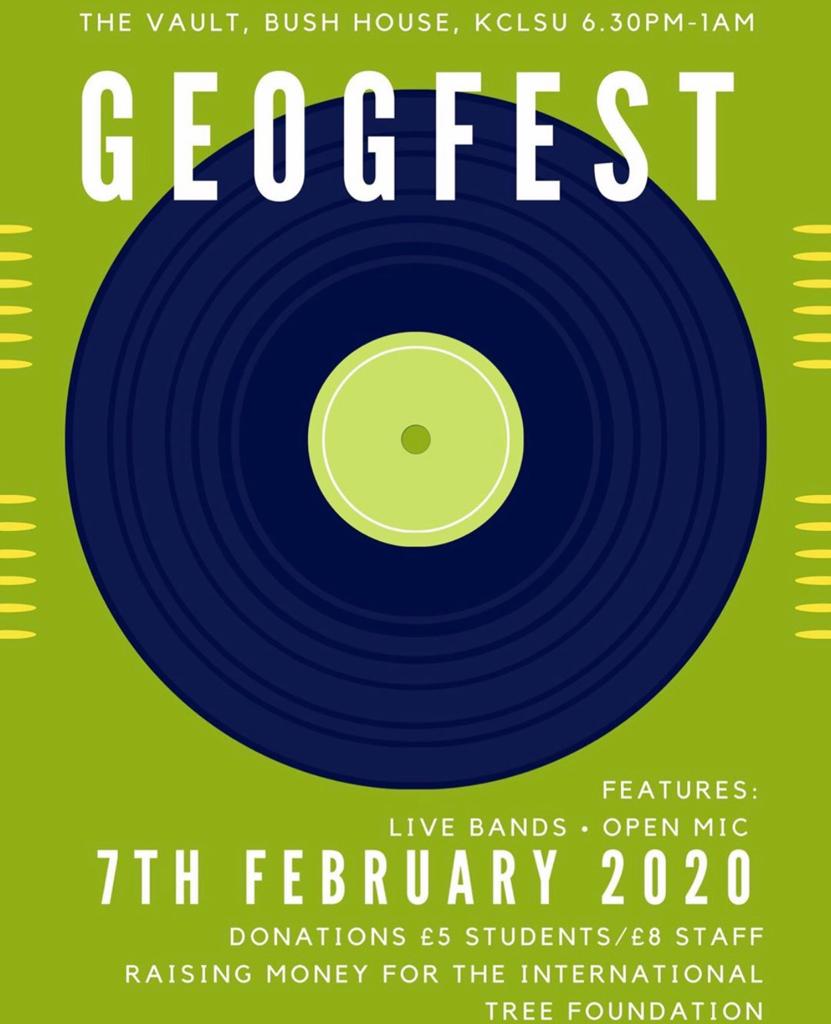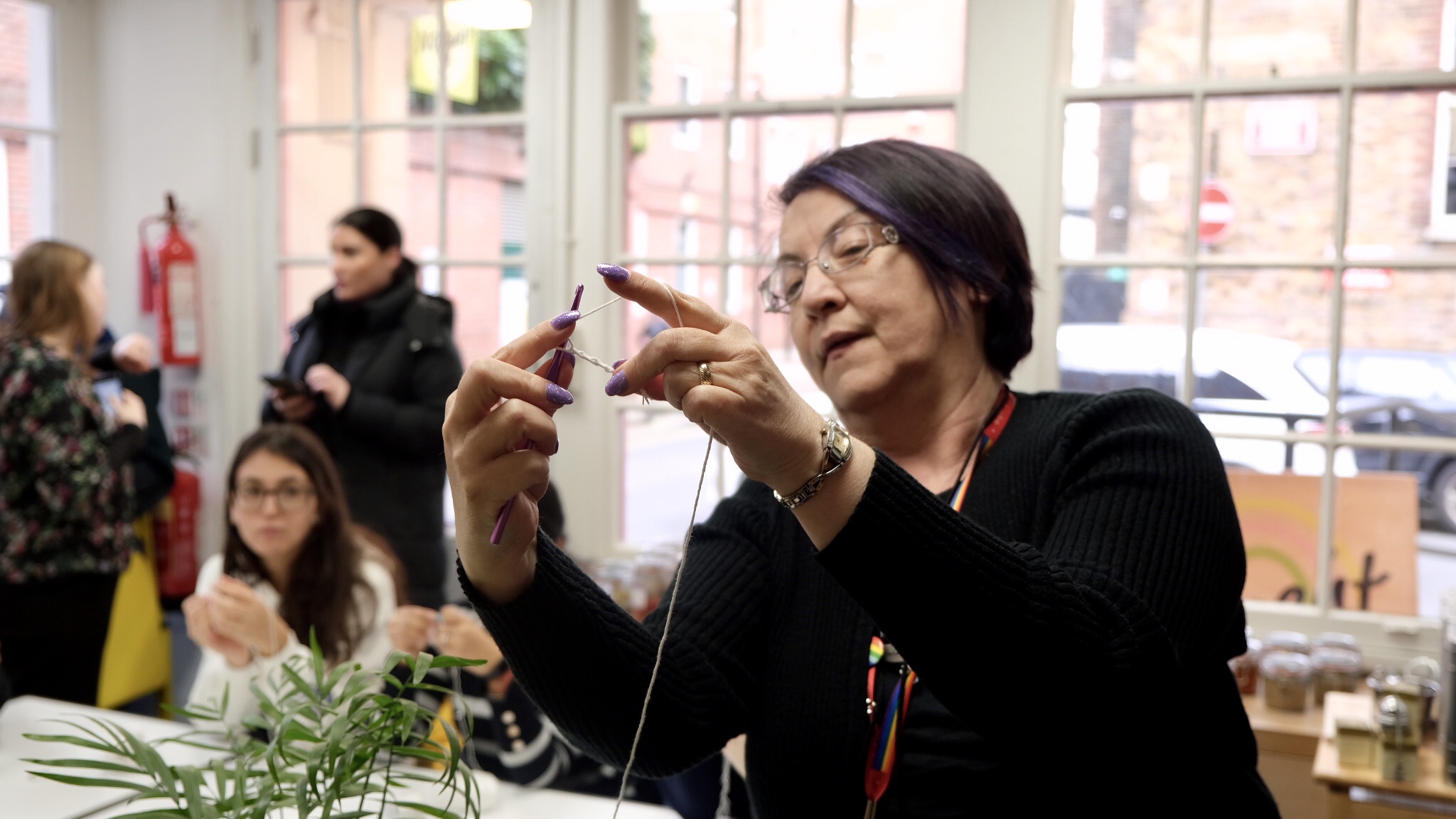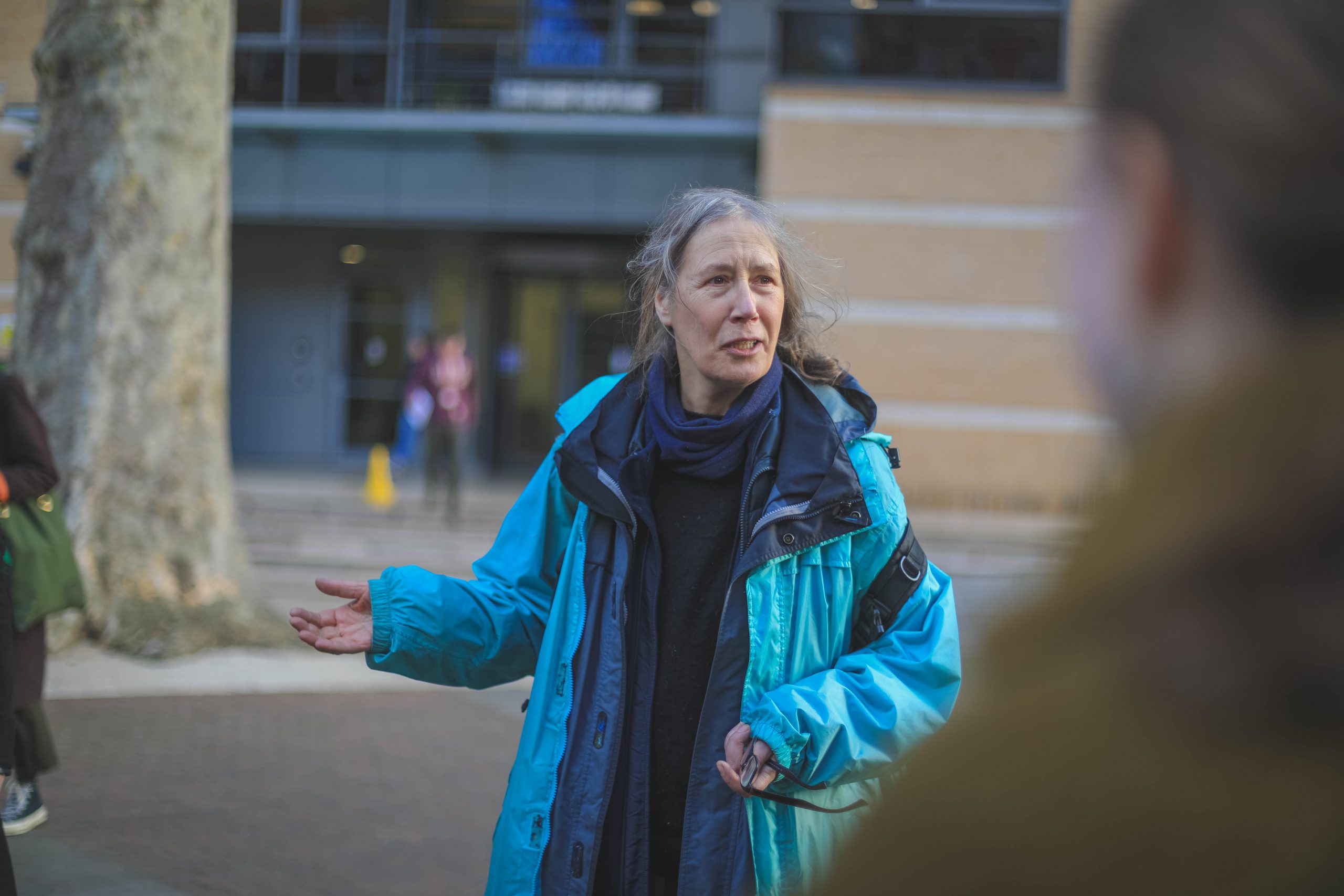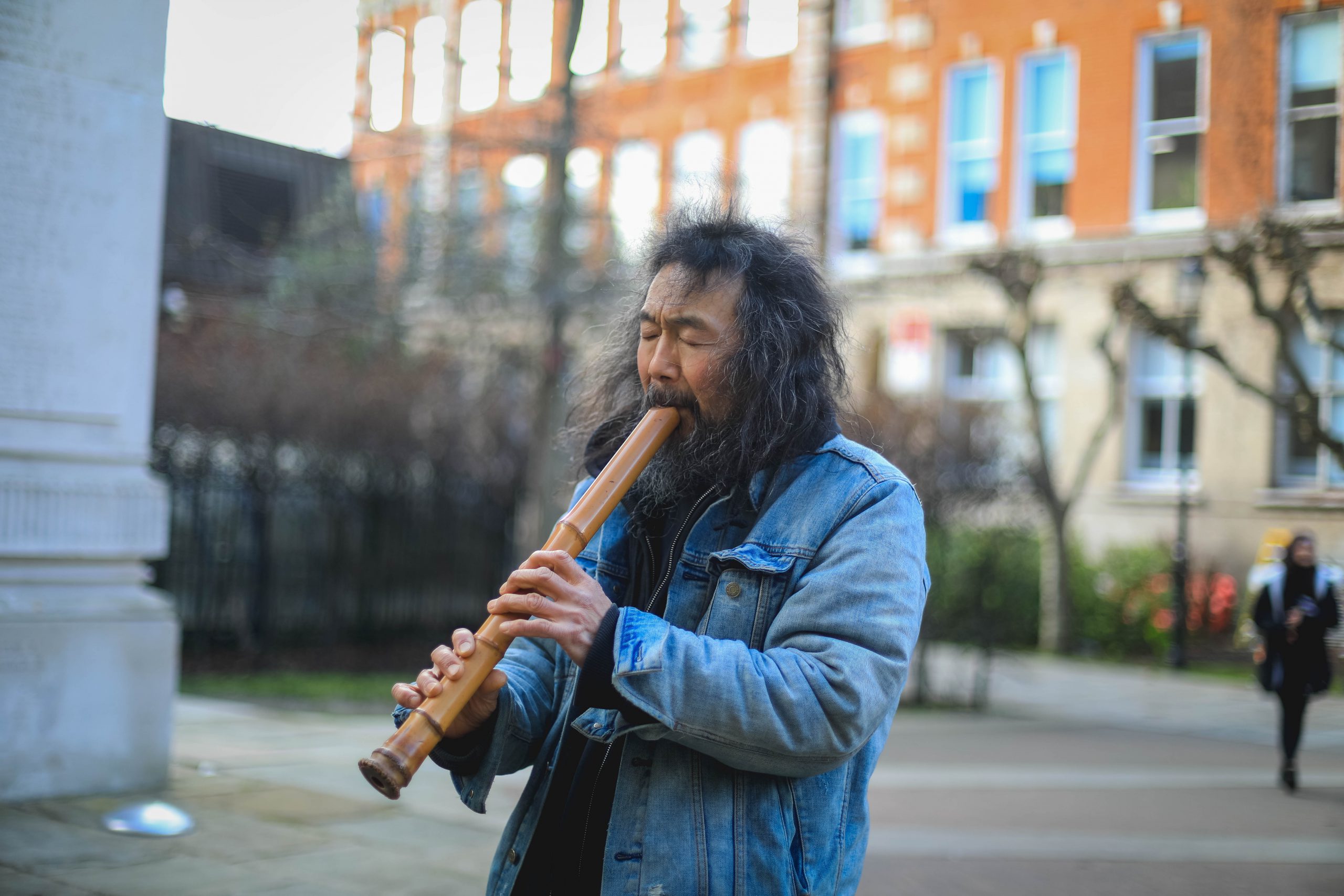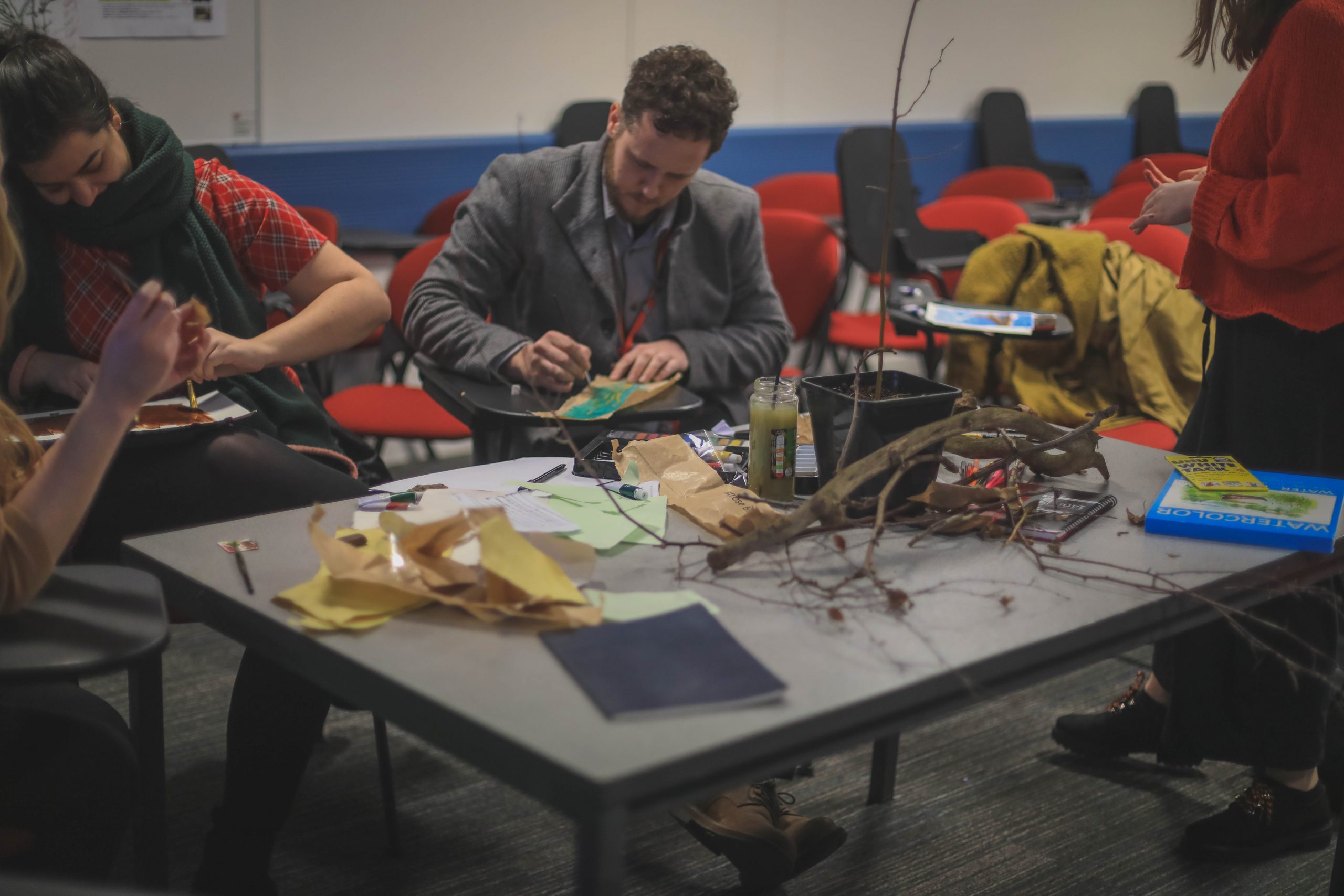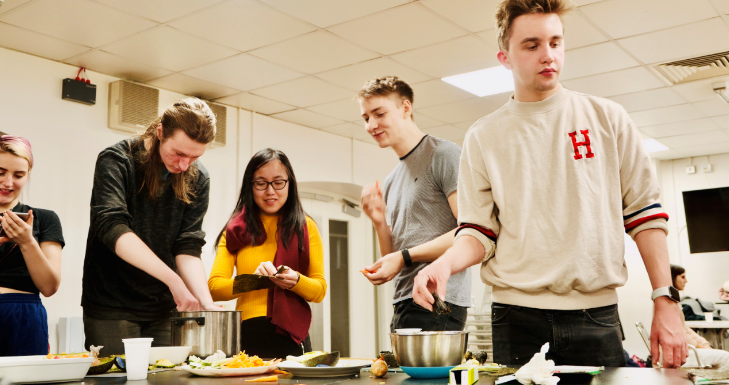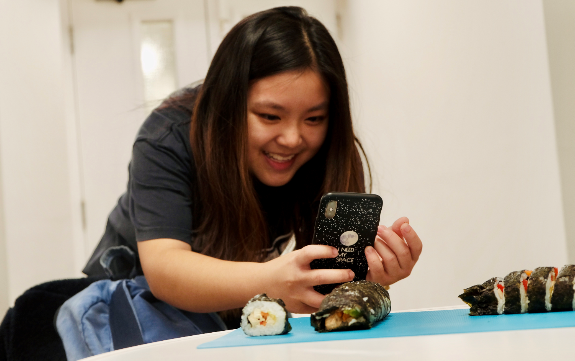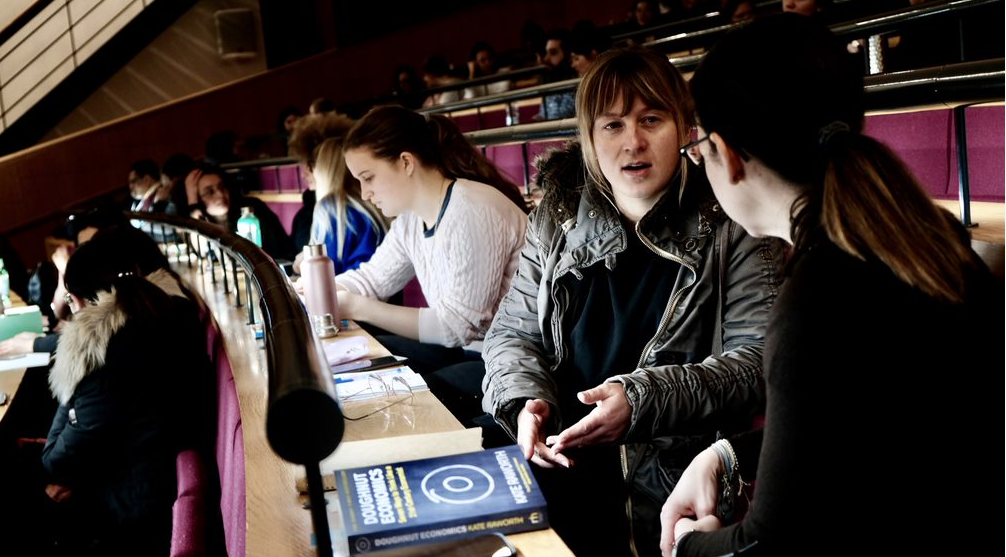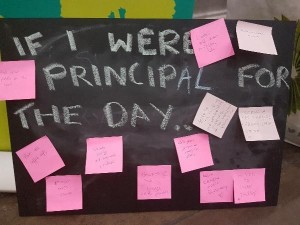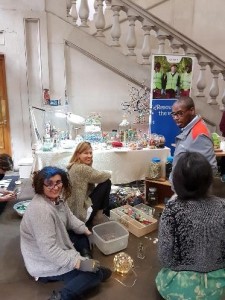Sustainability Month is in full swing!
Sustainability Month is a collaboration between King’s and KCLSU that offers all those involved an opportunity to learn more about sustainability topics, collaborate and connect with others from across King’s and #TakeAction on the climate crisis.
Check out the events taking place this week (7th to 11th of February):
| Monday | 18:30 – 20:00 |
Addressing the Climate Crises from a Policy Perspective | This event will increase awareness and understanding of how we can address climate issues through policy innovation. |
| Tuesday | 10:00 – 11:00 |
This plenary will offer an update on climate action progress at King’s and a discussion of some important opportunities and challenges. | |
| 13:00 – 15:00 |
Panel for Climate Justice | This event aims to promote inclusion in the climate movement and avoid narratives of exclusion, which are frequently promoted by dominant climate movements. | |
| 14:00 – 16:00 |
Show the Love at Denmark Hill | Attendees will participate in the Show The Love climate awareness campaign, which encourages gentle activism. | |
| Wednesday | 11:00 – 13:00 |
Attendees will participate in the Show The Love climate awareness campaign, which encourages gentle activism. | |
| 13:00 – 14:30 |
Against Gender Violence – Self-Defence and Taekwondo (CANCELLED) |
In this event, a Korean martial art and Taekwondo professional will teach the importance of self-defence and demonstrate key moves. | |
| Thursday | 11:00 – 14:00 |
Are you interested in sustainable education and want to build some skills? Receive training from SOS-UK to help map King’s modules alongside the Sustainable Development Goals. | |
| 14:00 – 16:00 |
Show the Love at Guy’s | Attendees will participate in the Show The Love climate awareness campaign, which encourages gentle activism. | |
| Friday | 12:00 – 12:45 |
Interested in growing your own fruit and vegetables? Then this session will provide you with practical advice to do so in a more sustainable and less work-intensive way. | |
| 14:00 – 16:00 |
Attendees will participate in the Show The Love climate awareness campaign, which encourages gentle activism. |
Throughout the month:
- Visit our Shots for Hope exhibition in The Exchange, Bush House between 2 February and 3 March. The exhibition features photos submitted by Kings students and staff that inspired hope.
- King’s Move challenge: get active by switching up your typical commute for something more active this February.
- LGBTQ+ History Month is also taking place in February: a month-long annual celebration of lesbian, gay, bisexual trans, and non-binary history, including the history of LGBTQ+ rights and related civil rights movements. We have included these events in the overview above.
We are excited to see you at the events! Any questions, don’t hesitate to get in touch with the team at sustainability@kcl.ac.uk.

